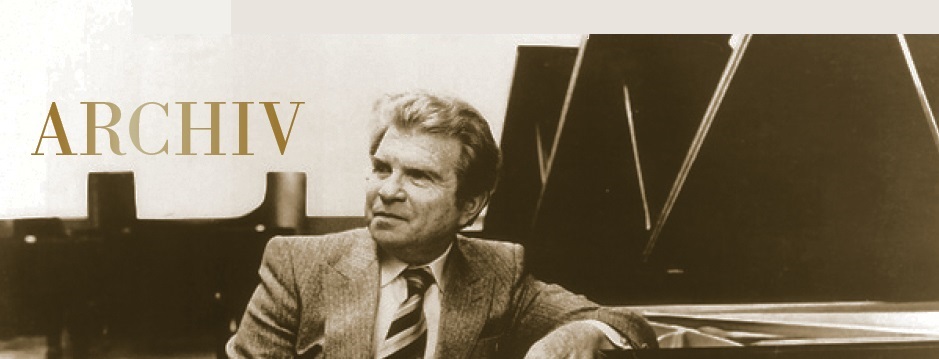
Uriel Segal: Encountering Emil Gilels
It was in 1982, in Helsingborg, Sweden that I had the great fortune of collaborating with Emil Gilels conducting Tchaikovsky Piano Concerto Nº1 in Bb minor for him.This encounter which turned to be a memorable one for me in more then one way, was a sort of “miracle” by itself to start with: At that time no Soviet musician was allowed by the Soviet régime to perform with Israeli colleagues, and so the collaboration between Mr. Gilels and myself should have been forbidden by the KGB. Anyway, to my great amazement it was allowed to happen.
After the first rehearsal with the Helsingborg Symphony Mr. Gilels asked me to join him for lunch at the hotel bistro and a conversation ensued between us: (Gilels’ wife Lala, was not feeling very well and preferred to rest in the room upstairs)
Gilels: “Have you ever been to Russia”?
Segal: “No”.
Gilels: “Have you ever been to a communist country”?
Segal: “Yes. I have been to Poland (touring the Stuttgart Radio Orchestra in 1972)
Gilels: “And what was your impression”?
Segal: ” Well, it was mixed. However, when I took my seat on the plane back to the West I felt a great relief”.
Gilels: “I want to show you something”.
At that point Gilels drew out of his purse a piece of yellow newspaper cutting in which a few words were underlined in red. It was a cutting of the New York Times from 1962 describing the press reception given to Stravinsky on his returne back to the US from his visit to Russia, his first visit in 48 years. To the question by the press was there anything he liked about the USSR Strvinsky replied there were indeed two things he did like about it, namely “the vodka and the exit visa” (Stravinsky was regarded as an “émigré traitor to the Motherland” by the Soviet régime).
I was touched to the core of my heart. Gilels was keeping this piece of newspaper all those years in his purse as a kind of “secret moto” and at a tremendous risk to himself, and what’s more, he trusted me enough to unravel it to me (at a time the harsh Brezhnev régime is still raging).
That evening I was invited by the Gilels to their room for tea and Mr. Gilels was very interested to hear my view on Schönberg. He was very happy and proud about a recent trip to Vienna where he played and recorded Mozart Double Concerto with his daughter Elena and the Vienna Pholharmonic under Kerl Böhm. He said there was nothing better in life.
The evening of the concert Gilels and I were supposed to meet at a certain time in the hotel lobby to be driven to the concert-hall together. I came down at the appointed time and Gilels was not there. I waited and waited and then tried to call his room but the phone was constantly busy. Finally he came down. He looked pale and extremely shaken, trembling all over he said “They are killing me. Look, my hands are shaking. How do they want me to play a concert now”. It was the KGB harrassing him. It was prety awful.
Monday, December 27, 2010


